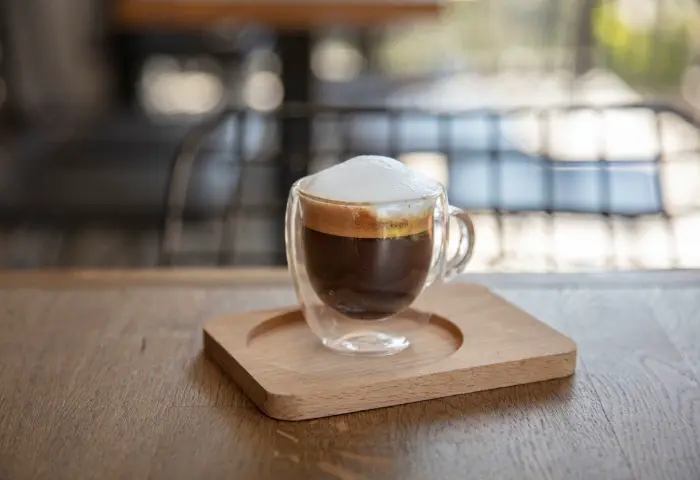Cafe culture has become a global phenomenon. From Paris to Tokyo, Melbourne to New York, coffee shops are more than just places to drink coffee. They serve as social hubs, workspaces, and cultural centers. The popularity of cafe culture continues to grow, with new coffee shops opening every day in cities worldwide.
The modern cafe culture we know today has its roots in 17th century Europe. The first coffeehouses appeared in the Middle East, then spread to Venice, London, and Paris. These early establishments quickly became important meeting places for intellectuals, artists, and business people. Today’s cafes still serve this social function, though in a more modern form.
The Social Aspect of Cafe Culture
People crave connection, and cafes provide the perfect setting. Unlike bars or restaurants, coffee shops offer a more relaxed environment where people can meet without pressure. The casual atmosphere encourages conversation and community building. Many people visit cafes specifically to socialize, whether with friends or strangers.
Cafes have become what sociologists call “third places” – not home, not work, but somewhere in between. These spaces allow for informal public life to flourish. In an increasingly digital world, cafes offer real human interaction. The simple act of sharing coffee creates bonds between people.
The Coffee Experience
Quality coffee plays a central role in cafe culture’s popularity. The specialty coffee movement has raised standards dramatically. Baristas now prepare coffee with the care of chefs, using precise techniques to extract maximum flavor. Customers appreciate this craftsmanship and enjoy learning about different brewing methods.
The variety of coffee options also attracts people to cafes. From espresso to pour-over, cold brew to flat white, there’s something for every taste. Many cafes roast their own beans or source from quality producers. This focus on quality transforms coffee from a simple drink into an experience worth savoring.
Cafe as Workspace
The modern workforce has embraced cafes as alternative offices. Freelancers, remote workers, and students find cafes provide the perfect balance of comfort and productivity. The background noise creates a productive environment, while the availability of coffee and snacks keeps energy levels up.
Many cafes now cater specifically to this need with ample power outlets, strong wifi, and comfortable seating. The ability to work outside a traditional office appeals to many people. Cafes offer structure without the formality of corporate environments.
The Aesthetic Appeal
Cafe design has become an art form. Instagram-worthy interiors attract customers who appreciate beautiful spaces. From minimalist Scandinavian designs to cozy rustic styles, cafes create atmospheres that people want to spend time in. The visual appeal extends to coffee presentation too, with latte art becoming increasingly elaborate.
This focus on aesthetics enhances the overall experience. People enjoy being in pleasant surroundings, and cafes provide this at an affordable price point compared to other leisure activities. The ambiance contributes significantly to cafe culture’s popularity.
Cultural Significance
Cafes have long been associated with creativity and intellectual life. Famous writers, artists, and thinkers have historically gathered in cafes to exchange ideas. This tradition continues today, with many creative professionals using cafes as thinking spaces.
In many cities, cafes serve as cultural landmarks. They host poetry readings, live music, and art exhibitions. This programming makes cafes important parts of local cultural scenes. People visit not just for coffee, but for the cultural experiences cafes provide.
The Role of Routine
For many people, visiting a cafe becomes part of their daily routine. The morning coffee ritual provides structure to the day. Regular customers develop relationships with staff and other patrons, creating a sense of belonging. This habitual aspect makes cafe culture deeply ingrained in many people’s lives.
The consistency of cafe experiences also contributes to their popularity. People know what to expect when they visit their favorite coffee shop. In an unpredictable world, this reliability provides comfort and stability.
Economic Factors
Cafes offer affordable luxury. While specialty coffee costs more than home-brewed, it remains accessible to most people. This makes cafe culture inclusive compared to other leisure activities that might require greater financial investment.
The growth of the middle class worldwide has expanded cafe culture’s reach. As disposable incomes rise, more people can afford regular cafe visits. The coffee industry has responded by opening more locations to meet this growing demand.
Health and Wellness Trends
Coffee consumption fits well with modern health trends when consumed in moderation. Studies show coffee offers various health benefits, including antioxidants and potential protection against certain diseases. The cafe environment also promotes mindfulness – taking time to enjoy a coffee break can reduce stress.
Many cafes now offer healthy food options alongside coffee, appealing to health-conscious consumers. The combination of good coffee and nutritious food makes cafes attractive destinations for those focused on wellness.
Globalization and Local Adaptation
While cafe culture has globalized, it also adapts to local tastes. In different countries, cafes incorporate local flavors and traditions while maintaining core coffee culture elements. This blending of global and local makes cafe culture both familiar and unique in various locations.
The spread of international coffee chains has introduced cafe culture to new markets. However, independent cafes often thrive by offering more authentic experiences. This diversity within cafe culture keeps it fresh and appealing.
The Future of Cafe Culture
Cafe culture shows no signs of declining in popularity. If anything, it continues to evolve and expand. New brewing technologies, sustainability initiatives, and innovative cafe concepts will likely drive future growth. The fundamental human needs that cafe culture meets – connection, comfort, and community – ensure its lasting appeal.
Conclusion
As society changes, cafes will adapt while maintaining their essential character. The combination of quality coffee and welcoming spaces seems destined to remain popular for generations to come. Cafe culture has become more than a trend – it’s now an integral part of modern life worldwide.


